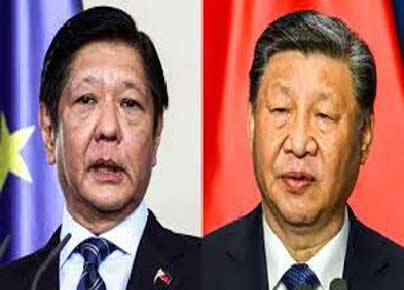Filipino exports risk Beijing's coercion amid the South China Sea row
2024-06-07

The Philippines faces the risk of China's economic coercion, which might affect the country's banana exports. This risk arises as their bilateral trade balance heavily favours Beijing amidst the ongoing maritime dispute between the two nations.
According to the Philippine Statistics Authority, China was the largest importer of goods from the Philippines the previous year, with a total value of US$29.4 billion. The Philippines exported nearly US$11 billion to China in the same year, indicating a trade deficit of approximately US$18 billion with its neighbouring country.
Despite the robust bilateral trade flows, the two countries have had repeated clashes in the South China Sea in recent months. These clashes range from naval skirmishes involving vessels from both sides to alleged environmental damage caused by Chinese fishermen. The Philippines has accused China of aggressive naval manoeuvres in the disputed waterway, while Beijing has claimed that Manila regularly trespasses into its maritime territory.
Don McLain Gill, a geopolitical analyst and lecturer at the Department of International Studies of De La Salle University, stated that the trade between the two countries reflects a preference by Philippine businesses for Chinese manufactured goods. He warned that a hasty diversification away from Chinese imports amidst international political uncertainties could lead the Philippines to face significant socio-economic challenges in the short to medium term.
The Philippines has enhanced its military cooperation with the US and other allies in recent years, primarily to address the security challenges in the South China Sea. In contrast, former President Rodrigo Duterte favoured closer ties with China and disregarded the US. Just weeks before Duterte stepped down from office in 2022, his administration borrowed 17.4 billion Philippine pesos (US$297 million) from China to build a bridge connecting his hometown in Davao City to Samal Island.
However, as soon as Marcos Jnr won the 2022 presidential election, he reversed his predecessor's pro-China policy and expanded cooperation with the US in areas ranging from trade to military. In February 2023, Marcos Jnr granted the US more comprehensive access to military sites in the Philippines under the Enhanced Defense Cooperation Agreement between the two countries.
Ray Powell, a maritime security analyst at the Gordian Knot Center for National Security Innovation at Stanford University, told This Week in Asia that China has a history of using trade as a weapon. He cited a low point in bilateral relations in 2012 when China restricted the import of bananas from the Philippines over their dispute in the Scarborough Shoal in the South China Sea. He advised, "The Philippines will, of course, continue to trade with the region's largest economy but would be wise to diversify where it can avoid becoming a target of Beijing's economic coercion."









